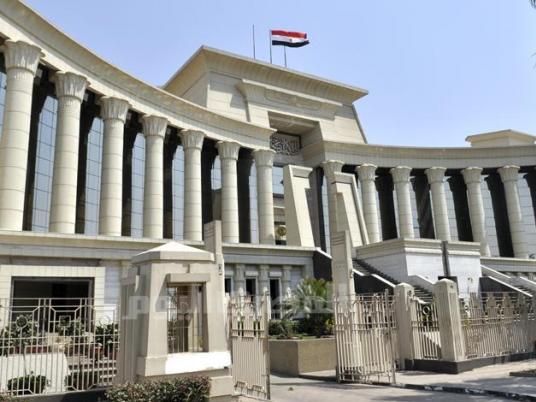Parliamentary Speaker Saad al-Katatny has confirmed that the People’s Assembly will respect the ruling of the Supreme Constitutional Court if it orders the dissolution of Parliament.
Speaking to a press conference on Saturday, Katatny said the Parliament will not interfere in the judiciary's affairs, but carefully study the upcoming verdict of the SCC.
On 14 June, two days before Egypt's presidential runoff election, the SCC will examine the legality of the electoral rules used for the parliamentary election, which was staggered from November to February.
The case was brought to SCC by an administrative court that said in February it had found legal flaws in the elaborate voting system that were unconstitutional.
The system allocated two-thirds of parliamentary seats to political parties and the rest to individuals who were supposed to be independent of any party.
These rules, however, did not stop parties such as the Muslim Brotherhood's Freedom and Justice Party from contesting the individual seats.
The administrative court judge said political parties should not have been allowed to run for the seats reserved for individuals. He also said half rather than a third of the seats should have been apportioned to individuals.
In the same session, the court will also examine the legality of a law challenging the right of Ahmed Shafiq, Mubarak's last prime minister, to seek the presidency.
Defending lawmakers
Katatny organized the press conference in response to harsh criticisms Ahmed al-Zend, head of Egypt’s Judges Club, made against the lawmakers last week.
Zend said their comments on the verdicts in the trial of the former president constitute an interference in judiciary affairs.
On 2 June, in the first trial of a leader toppled in the Arab uprisings, Mubarak was sentences to 25 years in prison for failing to stop the killing of protesters last year. Mubarak and his sons were found innocent of corruption charges, and senior Interior Ministry officials charged with killing protesters were also acquitted.
Pro-democracy campaigners weren’t satisfied with the verdicts and have been protesting since the announcement.
Lawmakers criticized the trial's presiding judge and the public prosecutors for failing to deliver justice.
Katatny asked Hossam al-Gheriany, the head of the Supreme Judicial Council, to clarify the judiciary's position on Zend's comments, which Katatny called an assault on a legislature that has the genuine right to legislate. "It is the sole authority expressing the will of the Egyptian people,” Katatny said.
Katatny asserted that he respects the separation of powers and appreciates judges, saying he would not respond to what Zend said, but only point out that, “All bills relating to the judicial authority were drafted by judges and advisors, former and current, and they are the same amendments demanded by Egypt’s Judges Club.”



